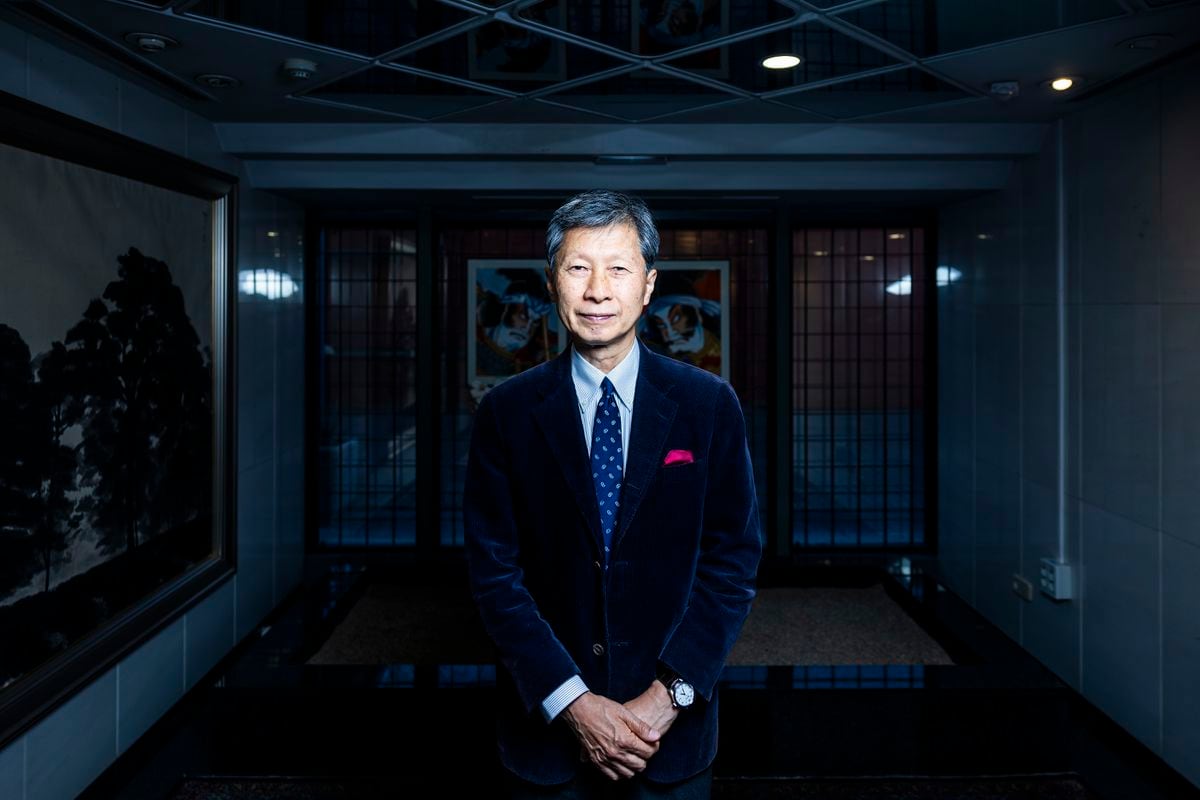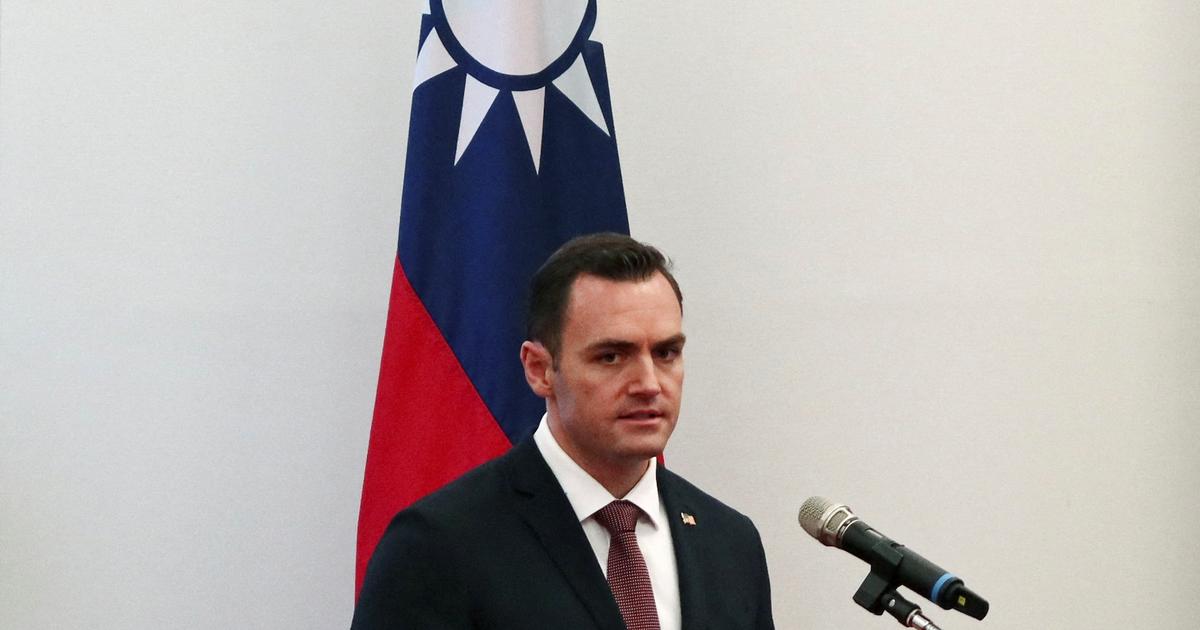Enlarge image
Skyline of Taiwan's capital Taipei: "The danger of an escalation has clearly increased"
Photo:
Cavan Images / Cavan Images / Getty Images
SPIEGEL
: Nancy Pelosi visited Taiwan - and thereby angered China.
Was that economically wise?
Max Zenglein
: The visit was mainly about political signals.
Economic collateral damage was accepted.
If you only look at China's economic response in the form of trade restrictions, this is limited and rather symbolic.
SPIEGEL
: It's about sand, citrus fruits and frozen mackerel.
Zenglein
: In the past, that happened again and again, for example with pineapples or apples - none of which really meant any significant economic cuts.
But: The visit illustrates the new political risks in the globalized world.
The danger of an escalation has clearly increased, even small things can meanwhile decide about it.
Companies worldwide should therefore realize how important it is to have a Taiwan scenario in their strategies.
Even if that was certainly not Ms. Pelosi's intention, the current events are a massive warning to the economy.
SPIEGEL:
Taiwan holds a 25 percent share of the world market in chip production, and German companies will hardly be able to make up for it...
Zenglein:
Not that.
But they must not ignore the risks and the newly forming reality.
If China were to have a sharp conflict with Taiwan, the problems would go well beyond a chip shortage.
The complex economic ties that Europe has with China would also be affected, as would important transport routes in the South China Sea.
The EU states, the USA, but also the companies would be forced to position themselves.
SPIEGEL:
And in the event of war, China would at least be sanctioned economically.
Zenglein:
Exactly.
However, I am not sure that companies in Europe have already prepared for this.
Things are different at TSMC, the leading Taiwanese semiconductor manufacturer.
This is in the process of expanding its production in the USA or Japan, for example, which is no coincidence.
SPIEGEL:
How could companies reduce their dependency on China and Taiwan?
Zenglein:
The dependency has grown over the decades.
Many companies have invested in China and a large part of their turnover is generated there.
Little of it will turn back overnight without damage.
So the main thing is how risk-resistant the companies are.
To improve that, they should review which parts of the supply chain are affected or where and how they can diversify.
This is a debate that we have been having for some time, but it has not been pushed forward with the speed and seriousness it deserves.
SPIEGEL:
Who needs to change in particular?
Zenglein
: Car manufacturers are usually mentioned here, but it goes far beyond that.
The entire electronics industry, for example, gets components, parts and printed circuit boards from China.
It starts with the stroller and ends with the mobile phone.
It reaches almost all products, directly or indirectly, if you look around a store.
SPIEGEL
: Do companies have to cut their cords?
Zenglein
: No.
With all important attempts to position themselves more broadly, this must not lead to the West and China decoupling.
In some areas, China itself is dependent on European technology, such as in special machine construction.
It is precisely this mutual economic dependency that can help to keep a cool head.
The only question is how long that will last when, as in this case, nationalistic tones become louder and US visits to Taiwan or friendships are interpreted differently than 20 years ago.
SPIEGEL:
Why is that?
Zenglein
: China has become a different country with a much more efficient economy.
However, the internal pressure on the leadership is also increasing, for example due to the meanwhile weakening economy or the upcoming 20th party congress, at which Xi Jinping wants to be confirmed again as general secretary.
The global political situation has also changed, for a variety of reasons.
SPIEGEL
: And what can a German company actually do?
Zenglein
: It would be nice if I had a magic formula.
The question of risks is very company-specific and sometimes companies themselves can only change a little.
The electronics industry, for example, is in China.
If you are a German machine builder for the electronics industry, then you sell a large part of your machines there – with the corresponding risk.
Politicians, associations and international partners could, however, ensure that globalization is less China-centric overall.
This should be started early, because it takes years.
After all, China didn't become this important industrial location in just two years.
SPIEGEL:
China, on the other hand, is itself dependent on semiconductors from Taiwan.
Is that also a reason for the escalation of the conflict?
Zenglein:
First of all, it's a political question, but of course Taiwan is also an important supplier of high-tech components to China.
But even if China were to take Taiwan, that doesn't mean they could take the technology with them.
That's not a raw material, but know-how and technology that is constantly being developed and that you can't just pump out.
That's why Beijing has no interest in harassing TSMC in any way, especially since the company is also on the ground in China itself.
The products, which the group also manufactures thanks to Dutch machines from ASML and technology from Germany, are not affected by the latest trade restrictions.
SPIEGEL:
Is that why the stock exchanges in Asia even reported a relieved plus today?
Zenglein
: The markets breathed a sigh of relief because things didn't get any worse.
But one should not assume that this is the case every time.
The Chinese intentions are clear and should the situation escalate further, the economy could very quickly become a pawn.
Because it's about the deep-rooted idea in the People's Republic that Taiwan belongs to China.
That's why I don't see how the conflict could be resolved peacefully in the next ten years.
SPIEGEL
: Are you currently not afraid of a new economic war because of the Taiwan question?
Zenglein:
Not in the current situation, but you shouldn't rest on your laurels.
Otherwise there is a risk of a situation like the current one with Russia, in which everyone was surprised that gas was running out - but then with far more far-reaching negative consequences.





/cloudfront-eu-central-1.images.arcpublishing.com/prisa/FIJVMOBHZRWVDBKS3NAQ2M4JRE.jpg)









